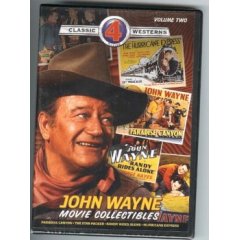
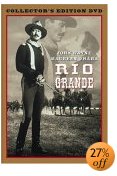
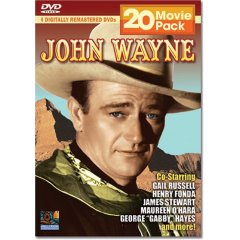
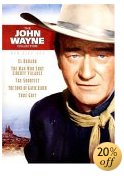
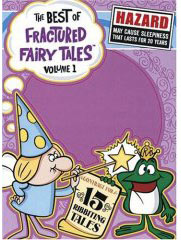
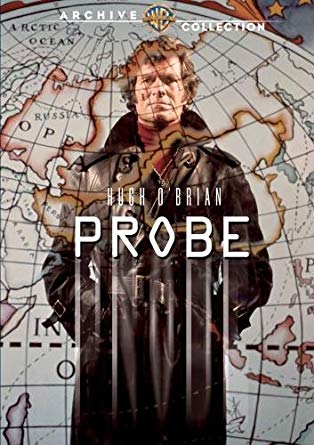
 |
 |
 |
 |
 |
 |
|
'TVparty
is hands down the best site on the Web for classic TV.'
'TVparty
is hands down the best site on the Web for classic TV.'
|
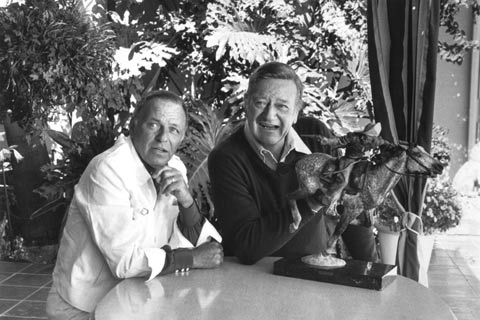  PART SIX: THE FINAL YEARS -- by Billy Ingram JOHN WAYNE - PART 1 / 2 / 3 / 4 / 5 / 6
In 1976, John Wayne dropped out of the box-office top ten for the first time in 25 years while at the same time generating tabloid headlines that screamed - 'John Wayne Madly In Love With His Secretary!' In fact, Wayne had spilt with his wife Pilar and was dating his much younger assistant, Pat Stacy.
His health failing, Wayne limited his TV appearances mostly to narrations and tributes like Chesty: A Tribute to a Legend, a 1976 documentary partially directed by John Ford (before he died in 1973), celebrating the life of General Lewis B. "Chesty" Puller, the most decorated man in the US Marines. He also released a patriotic recitation of The Pledge of Allegiance as a 45 single to celebrate the bicentennial.
As for what Duke thought of all of these trophies and tributes he claimed somewhat facetiously, "You can't eat awards. Nor, more to the point, drink 'em." To support The Shootist, Wayne was interviewed on Backlot USA, a 1976 summer show hosted by Dick Cavett, the Donahue show, and the film was the subject of an episode of NBC's Big Event. The movie stiffed at the box office despite glowing reviews. More tribute show appearances followed like America Salutes Richard Rodgers: The Sound of His Music and CBS Salutes Lucy: The First 25 Years airing November 28, 1976. A few weeks later he traded jokes on Bob Hope's Comedy Christmas Special.
Putting partisan politics aside again, he adopted a controversial stance on the Panama Canal Treaty. He favored the turnover of the canal to the Panamanian people, an issue that Ronald Reagan used as a political wedge against the incumbent in his successful run for the presidency in 1979. As with Vietnam, it came down to the nation giving its word.
In August, 1978, Wayne rode up on horseback in full western garb to film the first of several 30-second commercials for Great Western Bank. Filmed in Grants Pass, Oregon, the spots were broadcast in the California TV market. A magnificent, full sized bronze statue of the actor still stands on Wilshire Boulevard in front of the bank's former Beverly Hills branch. In 1978 a TV-movie, True Grit: A Further Adventure, aired with Warren Oates cast as Rooster Cogburn with Lee Meriwether (Time Tunnel) as Annie Sumner. This was a pilot for a weekly series that didn't sell, Wayne was not involved.
Henry Fonda also taped a segment for that special and candidly stated, "He seemed to be the same old Duke. He was thinner, which isn't bad except he hadn't got his clothes to fit his new weight yet, sort of loose at the collar. But he was in marvelous spirits."
Thanks in part to thirty years of constant TV exposure, John Wayne scored number one in the 1978 Performer Q rating which measures the popularity of well-known people. THE END On November, 4, 1978 Wayne filmed a Perry Como Christmas Special in historic Old Williamsburg. He was experiencing severe stomach problems throughout the shoot; after the holidays, doctors discovered cancer once again. The day before he was to undergo a major operation to remove his tumor-ridden stomach, John Wayne appeared on a Barbara Walters Special on March 13, 1979. Walters had a habit of catching major celebrities for their last interviews. Duke touched briefly on his mortality, "Listen, I spoke to the man up there on many occasions and I have what I always had; deep faith that there is a Supreme Being. There has to be, you know; it's just to me, that's just a normal thing, to have that kind of faith. The fact that He's let me stick around a little longer, certainly goes great with me, and I want to hang around as long as I'm healthy and not in anybody's way."
With that Oscar appearance and the Barbra Walters interview (recorded before the procedure but broadcast immediately after the awards show), the viewing public could believe that John Wayne was on his way to beating the 'Big C' one more time. It was not to be. Desperately ill at the Oscar ceremony, he barely made it through the experience. He died just weeks later, on June 11, 1979.
JOHN
WAYNE: PART 1
|
Please consider a donation
so we can continue this work!
Amazon Prime - unlimited streaming PR4 & PR5 Pages for Advertising
|
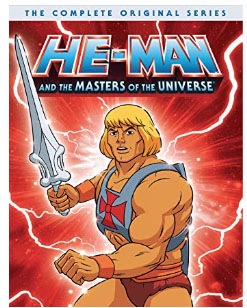 |
 |
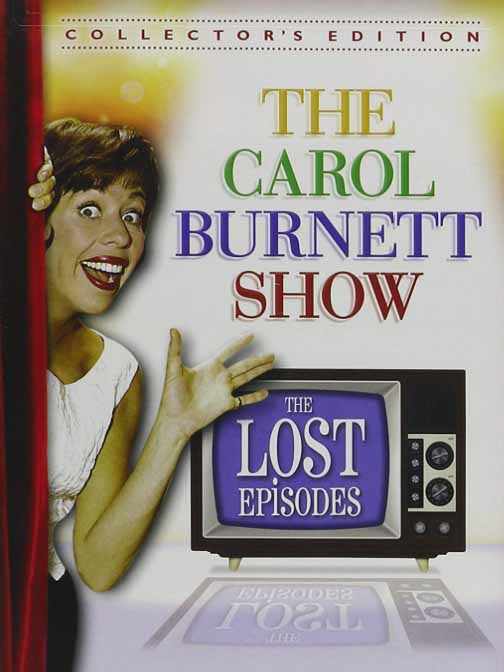 |
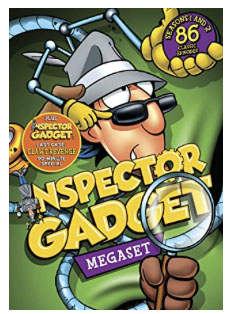 |
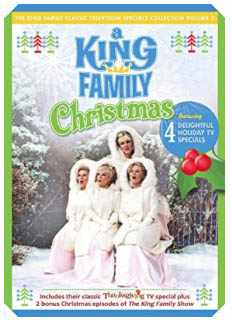 |
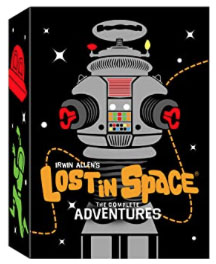 |
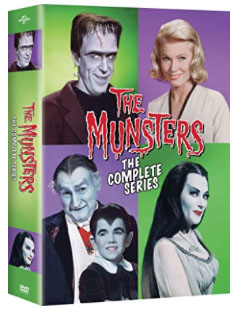 |
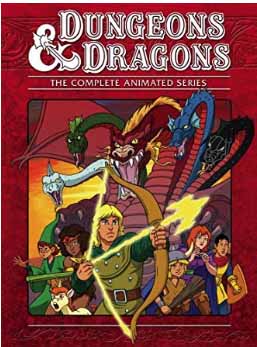 |
| TV
Shows on DVD/ / /
/ / / / TV Show Reviews /
/ / / / / / Cartoons
on DVD/ / / / / /
/ Holiday
Specials on DVD /
/ / / / / Classic
Commercials |
|||||||
|
||||||||||||||
Save money! |